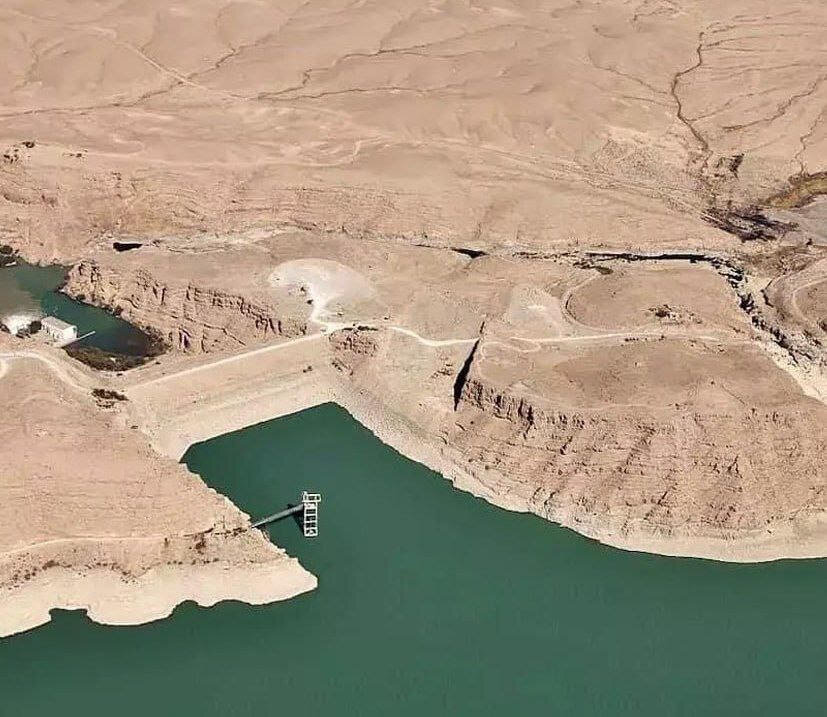Iran calls on Afghanistan to honor water rights in border river disputes

TEHRAN – The spokesperson for Iran's Foreign Ministry has underscored the critical need for cooperation between Iran and Afghanistan to maintain the natural flow of water in shared border rivers.
Esmaeil Baqaei made the remarks on Friday, following ongoing concerns over water management, dam construction, and potential disruptions to the ecological and economic stability of the region.
He also noted Iran’s long-standing role in hosting millions of Afghan nationals over the past five decades. These enduring ties, he said, underscore the importance of mutual respect and collaboration in addressing shared challenges.
Baqaei stressed that safeguarding and enhancing bilateral relations requires both countries to prioritize mutual interests and refrain from unilateral actions that could cause harm.
The spokesperson pointed to the significance of bilateral agreements, international treaty law, and customary international law in managing shared water resources.
He emphasized the natural rights of downstream populations who rely on these rivers, which have historically flowed from Afghanistan into Iran.
Baqaei called on Afghanistan to respect these rights and cooperate in ensuring the continued flow of water, removing any obstacles that might disrupt this natural process.
"The principle of good neighborliness should guide our efforts," Baqaei stated, adding that equitable use of shared water resources is essential for the well-being of both nations.
Addressing recent developments, Baqaei expressed Iran’s concerns over the construction and filling of new dams in Afghanistan. Such projects, he warned, could significantly impact the volume of water flowing into Iran.
He revealed that Iran has consistently raised these issues through official diplomatic channels and technical discussions, emphasizing that Afghanistan must honor its commitments under bilateral treaties and adhere to established international norms.
"Water resource management cannot be conducted unilaterally," Baqaei stated. "It must respect the rights of all stakeholders, adhere to principles of good neighborliness, and take into account environmental considerations."
The Foreign Ministry has formally conveyed its strong objections to Afghanistan regarding actions that restrict the natural flow of water or divert rivers that have historically sustained life and shaped the environmental balance along the shared border. Baqaei stressed that these rivers are vital not only for agricultural and ecological stability but also for maintaining the livelihoods of communities in both countries.
Baqaei concluded by expressing hope that Afghanistan would take steps to address these concerns responsibly. He urged the neighboring country to consider the shared interests of both nations, comply with international legal standards, and make decisions that reflect the spirit of cooperation and good neighborliness.
Over the past decade, tensions have escalated between Iran and Afghanistan over the management of shared water resources, particularly in the Harirud Basin. This international water basin, shared by Afghanistan, Iran, and Turkmenistan, plays a vital role in supporting livelihoods and agriculture in the region.
In 2016, Afghanistan inaugurated the Salma Dam on the Harirud River, reducing water flow to Iran and Turkmenistan by an estimated 73%. The Harirud Basin is particularly critical for northeastern Iran, where 3.4 million people, including residents of Mashhad, depend on its water. The region relies on the Doosti Dam, a joint project between Iran and Turkmenistan, which pumps water over 182 kilometers to support this population.
Recently, Afghanistan's caretaker government announced it has begun filling the Pashdan Dam, located near Herat on the Harirud River, disregarding Iran’s customary water rights.
The development adds to long-standing disputes over the Hirmand River, which dates back to the 19th century. Although a 1939 treaty was drafted to address water sharing, it was never ratified by Afghanistan, leading to protracted disputes. In 1973, the two nations agreed that Afghanistan would allow a flow of 26 cubic meters per second—equivalent to 820 million cubic meters annually—into Iran. However, political upheavals, including a 1973 coup in Afghanistan, prevented the agreement from being fully implemented.
Efforts to resolve the issue continued with a bilateral agreement in 2003, but Afghanistan has repeatedly failed to honor the treaty’s terms. This has exacerbated the situation, leaving Iran struggling to secure its rightful share of water.
Leave a Comment